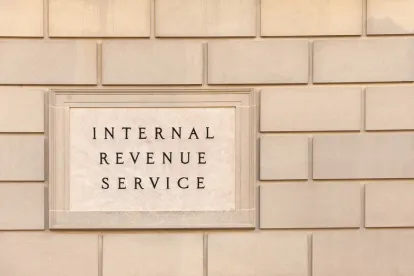As part of an ongoing effort by the IRS to provide employers and employees with flexibility during the COVID-19 pandemic, the IRS recently issued notices 2020-29 and 2020-33, providing relief with respect to “cafeteria plans,” health flexible spending accounts (Health FSAs), dependent care assistance programs (DCAPs), and high deductible health plans (HDHPs). The relief applies to all employees who are eligible to participate in such plans, regardless of whether they are actually affected by COVID-19. Below is a summary of key aspects of the guidance and practical issues to consider.
Notice 2020-29
Midyear Election Changes
Notice 2020-29 allows employers to amend their cafeteria plan, Health FSA, DCAP, and group health plans to temporarily allow employees to make the following prospective midyear election changes during the 2020 calendar year, which would otherwise not be allowed absent a change-in-status event:
-
Make a new election to enroll in employer-sponsored health coverage if the employee initially declined coverage.
-
Revoke an existing election for employer-sponsored health coverage to enroll in a different coverage option (e.g., changing from HDHP to PPO or from single to family coverage).
-
Revoke an existing election for employer-sponsored health coverage, provided the employee certifies in writing that the employee is or will immediately enroll in other group health coverage (e.g., another employer’s health plan). The notice includes sample attestation language.
-
Revoke or change an existing Health FSA and/or DCAP election (election changes may be limited to amounts no less than amounts already reimbursed) or make a new (initial) election.
It is unclear whether the election relief applies to other types of group health coverage (i.e., dental and vision). Employers considering adding this relief should consult with providers and benefits counsel before applying the relief to vision or dental coverage.
Extension of Claims Period for Health FSAs and DCAPs
Notice 2020-29 also allows employers to amend their plans to temporarily permit employees to use leftover Health FSA and DCAP amounts remaining as of the end of the grace period or plan year ending in 2020 (i.e., non-calendar year plans) to pay for eligible Health FSA and/or DCAP expenses incurred through December 31, 2020. The extended claims period relief generally applies to cafeteria plans that already provide a grace period but may be added to non-calendar year plans ending in 2020 that do not have a grace period or that provide a carryover feature (notwithstanding current rules that prohibit simultaneous carryover and grace period features).
The notice also clarifies that individuals with unused Health FSA amounts in 2019 and who switched to a health savings account (HSA) in 2020 will generally be ineligible to contribute to their HSA during the extended claims period unless they participate in an HSA-compatible FSA. Accordingly, employers that sponsor plans with an HSA feature and that are considering this relief will need to be mindful of excess HSA contribution issues, particularly if their 2019 grace period or plan year has already ended.
Miscellaneous Relief
-
Applicability of Notice 2020-15. On March 11, 2020, the IRS issued Notice 2020-15, which allows HDHPs to provide first-dollar coverage for COVID-19-related testing and treatment services without affecting the ability of a participant to contribute to an HSA. Notice 2020-29 clarifies that this relief is retroactive to January 1, 2020. The notice also clarifies that for Notice 2020-15 purposes, COVID-19 testing and treatment services include diagnostic testing for influenza A and B, norovirus and other coronaviruses, respiratory syncytial virus, and any items or services required to be covered with no cost sharing under the Families First Coronavirus Response Act and the CARES Act.
-
HDHP Telehealth Services Safe Harbor. Notice 2020-29 clarifies that the IRS will apply Section 3701 of the CARES Act retroactive to January 1, 2020 (rather than March 27, 2020). (Section 3701 allows HDHPs that provide pre-deductible coverage for telehealth and other remote services to remain HSA eligible.)
The changes under Notice 2020-29 are optional and employers may elect to amend their plans to include all, some, or none of these changes. Any amendments to incorporate these changes must be adopted by December 31, 2021, and can be made effective retroactive to January 1, 2020, provided the plan complies in operation. Employers must also notify all employees eligible to participate in the cafeteria plan of any changes.
Notice 2020-33
Notice 2020-33 makes the following permanent non-COVID-19 changes affecting Health FSAs and individual health reimbursement arrangements (IHRAs):
-
Indexing of Health FSA Carryover Amount. Notice 2020-33 increases the Health FSA maximum annual carryover amount (currently $500) to $550 as adjusted annually for inflation, effective for plan years starting on or after January 1, 2020. Employers adopting this change must notify eligible employees and adopt a plan amendment by no later than December 31, 2021.
-
Timing of IHRA Reimbursement. Notice 2020-33 clarifies that an IHRA may treat premium expenses as incurred on (1) the first day of each month of coverage on a pro rata basis, (2) the first day of the coverage period, or (3) the date on which the premium is paid. As an example, an IHRA participant could be reimbursed in 2020 for premiums paid or incurred in December 2019. This is an operational change for which no formal amendment should be required.
Next Steps
Employers should first decide which changes, if any, will be adopted. In making this decision, employers wishing to adopt midyear changes under Notice 2020-29 should consider cost and administrative challenges (e.g., impact on nondiscrimination testing and HSA excess contribution issues, etc.) but also the potential for adverse selection, particularly if the employer is self-insured. Employers opening up their plans to new midyear elections will also need to consult with their insurance and/or reinsurance carriers and obtain their written acceptance of any changes.
Employers will need to engage with their cafeteria plan vendor to coordinate the implementation of any changes and to identify any potential issues or limitations, such as vendor capabilities. Employers wishing to adopt the claims period extension will also need to determine whether FSA forfeitures have already been applied to pay for plan expenses. If so, the employer will likely have to restore these amounts.
Employers whose plans already provide for carryovers (or who wish to include these features) should consider whether to hardwire the new indexing feature into the plan, to avoid having to amend the plan each time the IRS adjusts the carryover limit.
Finally, employers should consider how the changes will be communicated to employees, in accordance with ERISA (particularly for Health FSAs). Accordingly, employers should make every effort consistent with the notices and prior IRS and DOL COVID-19 guidance relaxing plan notification requirements to notify participants and employees as soon as administratively feasible.
Remember that legal principles may change and vary widely in their application to specific factual circumstances. You should consult with counsel about your individual plan, any plan amendments, and participant notices.





 />i
/>i

